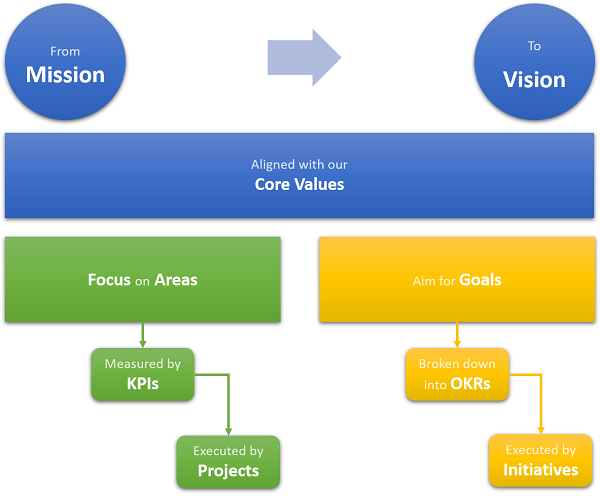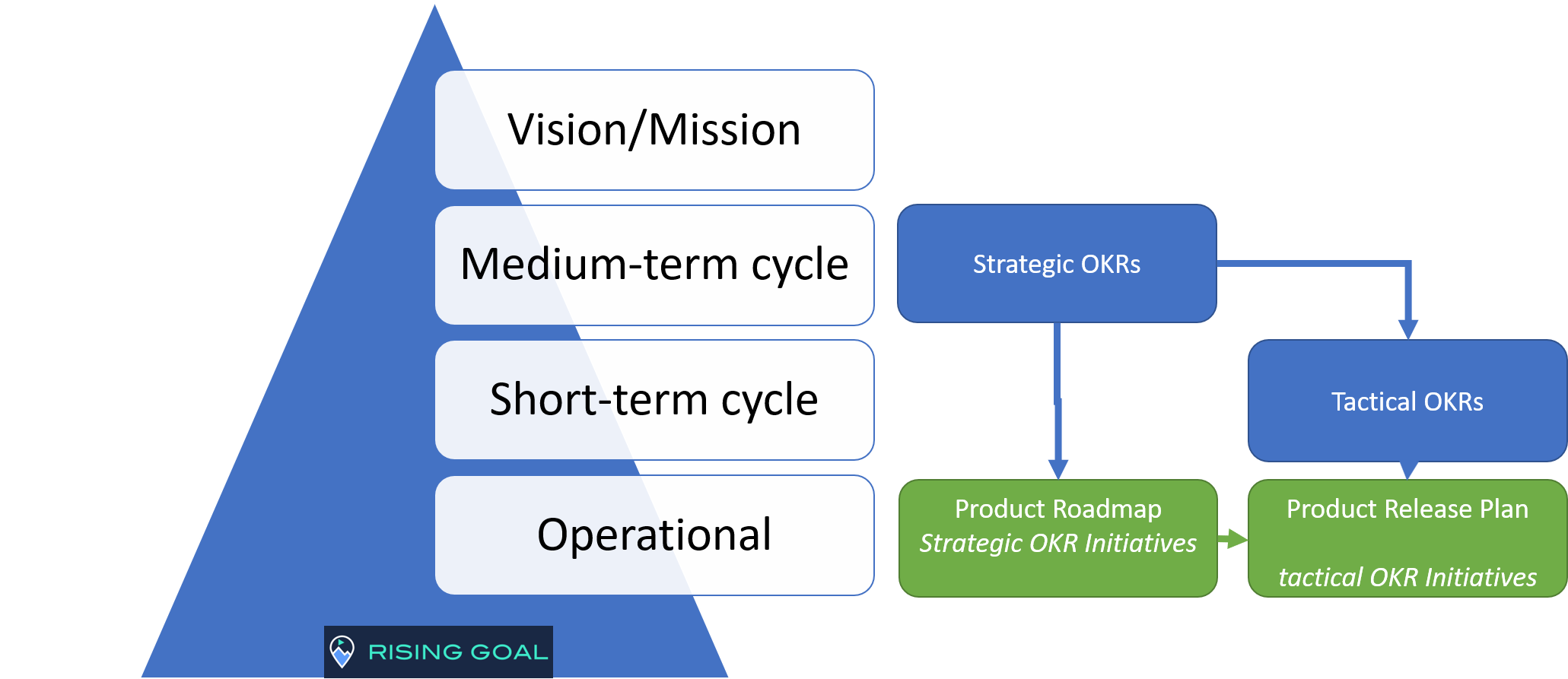The dilemma of strategy
Let’s try to understand the forces involved.
Intro
The Strategy Template
In a previous article, we proposed a model to formalize and communicate the strategy.
We will now focus on Focus Areas and Goals. Little reminder:
Goals
Goals are the medium-term strategic project, its strategic priorities for 3 to 5 years. They are expressed in the form of results.
This is what should make the activities of tomorrow emerge. Not only what guides the direction and the big decisions of the organization. But also, the horizon for new high growth activities.
Focus Area
These are the activities you want to focus on and spend time on. They allow you to consolidate your strengths by developing centers of excellence or areas of expertise. These are your skills allowing you to execute the strategy in addition to a suitable organization and managerial system.
Each of your values should have a few areas of focus. These measurable areas of focus that will secure your values. That is the reason we need values when designing the strategy. Values are not only related to the company’s culture.
Tension between Focus Areas and Goals
The dilemma of strategy
Moreover, the very fact of having a strategy creates resistance to any strategic change!
And that can be a good thing because these phases of stability are necessary to exploit the strategy and develop the right skills.
This is why Jeff Bezos focuses on the stable elements, which will still be true in 10 years, to build his strategy:
Customers want to receive their goods as quickly as possible and as cheaply as possible!
Moreover, strategic reorientations can be real cultural revolutions. We see it with the digital strategy, and its transformation of the culture of the organization. This is also the case with agile transformation. This can eventually change core values! Even lead the organization to seek a new raison d’être.
Tension between Focus Areas and Goals
The fundamental dilemma in strategy design is the need to reconcile the forces of stability and those of change:
- The forces of stability are found in the Focus Areas (and the values of the company).
- While the forces of change are in the Goals.
The dilemma of strategy
Reconcile the forces of stability and those of change
To solve this dilemma, the strategy represents the mediating force between a dynamic environment and a stable operating system.
This is what frameworks such as the 3 horizons model of McKinsey or organizational models such as ambidextrous organization and its vacillation strategy (alternating exploitation and exploration within the same company) seek to solve. Structurally.
What’s next?
The three horizons model
Related Posts on Strategy
OKR Cycle
OKR cycle will allow you to define and organize the life cycle of your OKRs in your organization. Set the medium-term and short-term goals.
A strategy template
A strategy template, to strengthen our game in the area of strategy to improve our objectives and key results !







Recent Comments